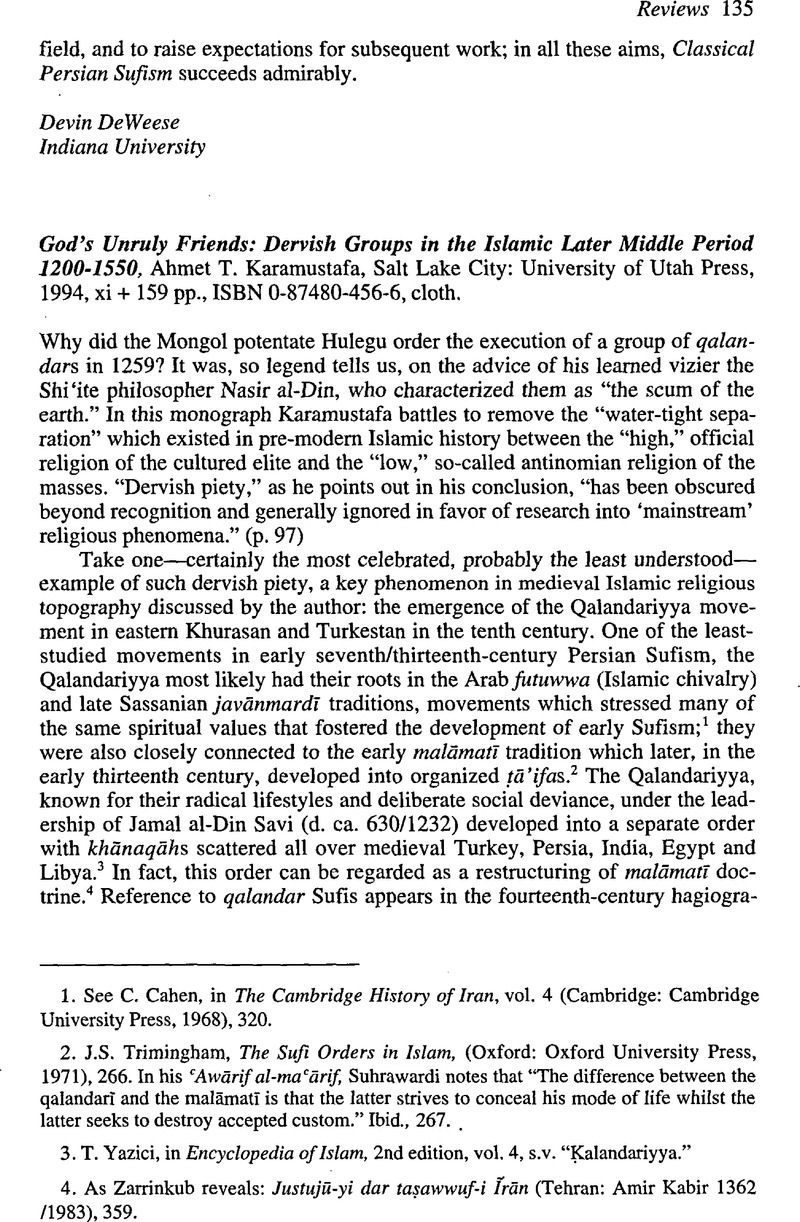No CrossRef data available.
Article contents
God's Unruly Friends: Dervish Groups in the Islamic Later Middle Period 1200–1550, Ahmet T. Karamustafa, Salt Lake City: University of Utah Press, 1994, xi + 159 pp., ISBN 0–87480–456–6, cloth.
Review products
Published online by Cambridge University Press: 01 January 2022
Abstract

- Type
- Reviews
- Information
- Copyright
- Copyright © Association For Iranian Studies, Inc 1999
References
1. See Cahen, C. in The Cambridge History of Iran, vol. 4 (Cambridge: Cambridge University Press, 1968), 320.Google Scholar
2. Trimingham, J.S. The Sufi Orders in Islam, (Oxford: Oxford University Press, 1971), 266.Google Scholar In his ᶜAwārif al-maᶜārif, Suhrawardi notes that “The difference between the qalandarī and the malāmatī is that the latter strives to conceal his mode of life whilst the latter seeks to destroy accepted custom.” Ibid., 267.
3. Yazici, T. in Encyclopedia of Islam, 2nd edition, vol. 4Google Scholar, s.v. “Ḳalandariyya.”
4. As Zarrinkub reveals: Justujū-yi dar taṣawwuf-i Īrān (Tehran: Amir Kabir 1362 /1983), 359.Google Scholar
5. Ibid., 362.
6. See Wilson, Peter L. “The Wine-Songs of Fakhroddin Iraqi,” in his Scandal: Essays in Islamic Heresy (New York: Autonomedia, 1988), 123-52.Google Scholar
7. Trimingham, op. cit., 267.
8. Yasar Ocak, A. “Kalenderi Dervishes and Ottoman Administration from the Fourteenth to the Sixteenth Centuries,” in Smith, G.M. Ernst, Carl (eds.), Manifestations of Sainthood in Islam (Istanbul: Isis Press, 1993), 239-40.Google Scholar
9. Ibid., 244.


